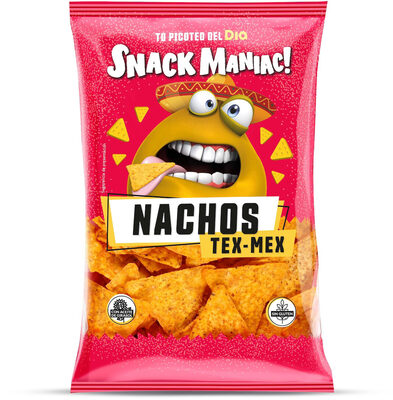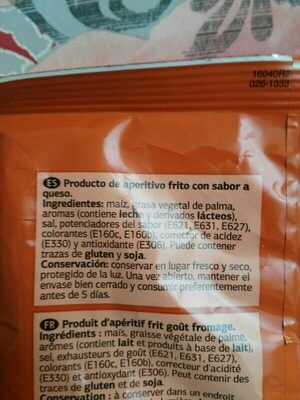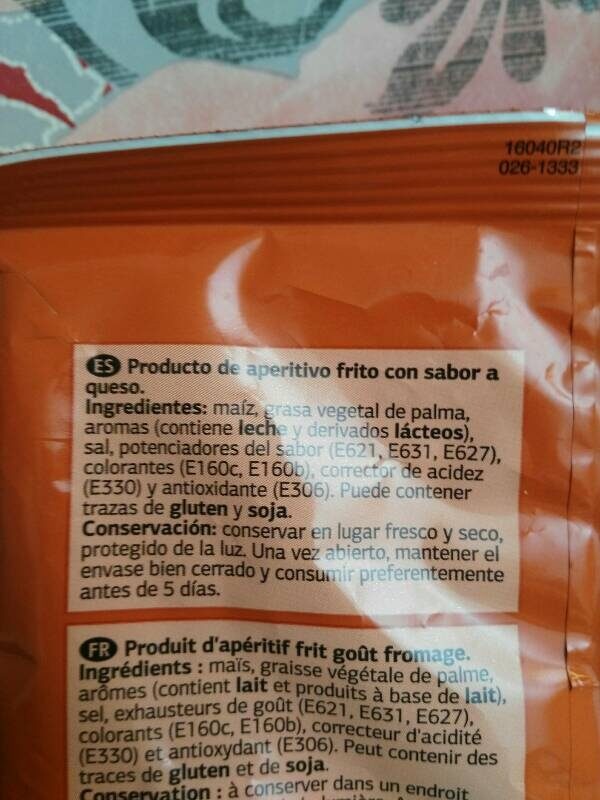Doritos tex-mex - Dia - 300 gr
This product page is not complete. You can help to complete it by editing it and adding more data from the photos we have, or by taking more photos using the app for Android or iPhone/iPad. Thank you!
×
Barra-kodea: 8480017288288 (EAN / EAN-13)
Kopurua: 300 gr
Ontziratzea: en:Plastic
Markak: Dia
Kategoriak: en:Snacks, en:Salty snacks
Etiketak, ziurtagiriak, sariak: en:No gluten
Dendak: Dia
Saltzen diren herrialdeak: Espainia
Matching with your preferences
Ingurumena
Ontziratzea
Transportation
Threatened species
Report a problem
Datuen iturria
Product added on by elcoco
Last edit of product page on by roboto-app.
Produktuaren orria -gatik editatua elcoco.5a1e325b99deeb73d3a0c1442ca92809, inf, joseangel-madrid, kiliweb, packbot, teolemon, thaialagata, yuka.VC8wY0NaWUhxOFVidC8wejN5N2J3OHg3bDQ2WlozbUhEOU1mSVE9PQ, yuka.sY2b0xO6T85zoF3NwEKvlk9pTOLbgm3WGhrgwU6T28fQH5a1WtNq5NLbNag, yuka.sY2b0xO6T85zoF3NwEKvlnJICdSAixzuFCzQmXCq2cjSNse4UNBQu9GnNqg.











